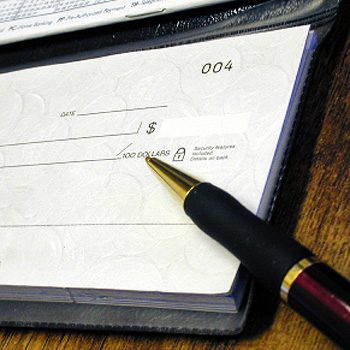
In marriage, you join your hearts and hopes…but what about your bank accounts? How to merge and manage your money is a talk that many couples avoid. That’s no surprise, say financial experts. Think of all the potential flash points: different incomes, different spending habits, different priorities, and maybe even different financial goals.
Here’s what you need to remember:
- Each of the account options listed below offers benefits and disadvantages. It’s not a matter of right or wrong but what works for you.
- Second, each option requires a conversation-not a few minutes stolen while doing the dishes but a sit-down talk. “People spend more time discussing the options for their cable subscription than they do deciding on their finances,” says Jon Billings, a financial counsellor in Winnipeg.
- Finally, whatever you decide with your finances is not set in stone, points out Valerie Chatain-White, a CFP Winnipeg financial planner. It’s a good idea to revisit your account arrangements throughout your marriage, as your income and expenses change, as you reach certain milestones (having children, buying a home) and as your goals evolve (saving for education or retirement).
So what do you need to know to decide on the best arrangement for you right now? Click through for some tips from the financial professionals.

Joint Chequing and Savings
Pros
- You’re making a statement that you’re in this together, financially and emotionally. All bills are paid from, and savings held in, a single pot.
- Simplicity-no transferring between accounts or figuring out who pays or saves for what.
- Everything is open. “It reflects a relationship where you want trust, transparency and accountability,” says Teresa Black Hughes, a financial planner in West Vancouver, and chair of Advocis, the Financial Advisors Association of Canada.
Cons
- Who’s in charge? One account requires a higher degree of communication.
- Less privacy. Your expenses and savings are an open book. “That may not suit people who are fiercely independent,” says Black Hughes.
- Possible resentment if your incomes are unequal. That is, the higher-income spouse may feel penalized, says Chatain-White. It’s important to figure out who will pay predetermined amounts.
Having the Conversation
- As a foundation, talk about your joint ownership-“It shouldn’t matter who earns what,” says Billings. “It’s not my money or your money; it has to be our money.”
- Though you’re sharing the pot, set a limit of what you can each use as “play money” without running a purchase by the other spouse. “Otherwise,” says Billings, “one spouse can outspend the other, and resentment can build.”
- Decide who will take the lead in paying the bills. One spouse is usually more interested than the other. Regardless, you need to establish how both of you will review and understand where all of the money is going.

Separate Chequing and Savings
Pros
- Independence. You don’t have to worry about your every decision being scrutinized by your spouse. In the case of a re-marriage, you can keep spousal or child support payments distinct, separating the prior relationship from a financial standpoint.
- Fairness. You can divvy expenses based on income.
- Financial autonomy. It’s important for each person to maintain their own credit history. And this will add to each individual’s credit history, says Chatain-White.
Cons
- Lack of accountability. You don’t have that common file to demonstrate you’ve each paid bills, or saved as planned.
- Less communication. With separate accounts, you may have fewer chances to discuss joint goals.
- Lack of accessibility. It could become a problem if one spouse’s account is running low or if an urgent financial need arises when one of you is out of town.
Having the Conversation
- Couples who go this route are already used to managing their own money, so this conversation is more like an “agreement of terms”-who pays which bills, and how much you each put aside for savings-says Billings
- Ideally, you’ll agree to pay for your own purchases, or split common bills based more or less on income. You could just split the bills down the middle, but don’t bring up usage, such as “You watch all the TV, so you should pay the cable.” “You could open up some wounds and drive a big wedge between you,” says Billings.
- Get on the same page about your financial objectives and what you’re saving towards. Your accounts may be separate, but you need to discuss your common goals.

Mix of Joint and Separate Accounts
Pros
- Could be the best of both worlds. You maintain some independence, while pooling money for joint causes.
- Flexibility. Joint accounts needn’t be just for bills. They can be used for anything from travel savings to investments, with each spouse putting in a set amount, plus occasional “bonuses” as income and circumstances change.
Cons
- More accounts can create more paperwork and confusion. What happens when new expenses are added?
- Can be harder to keep track of the big picture of savings and expenses.
Having the Conversation
- Because you have a mix of accounts, the key discussion points related to the other two options would apply here, too.
- In these kinds of arrangements, one spouse may well be better at handling money than the other, so may have to take control. “This conversation is touchy,” says Billings, “because you can’t say to the other person, ‘I have no faith in your ability to manage money.’ You need to say something like, ‘You have enough on your plate,” or “I know this isn’t your thing, so let me deal with this and I’ll give you updates.’ Somebody has to take the reins. [The issue is whether] that can be done tactfully or hurtfully. Anyone in a marriage knows the difference.”